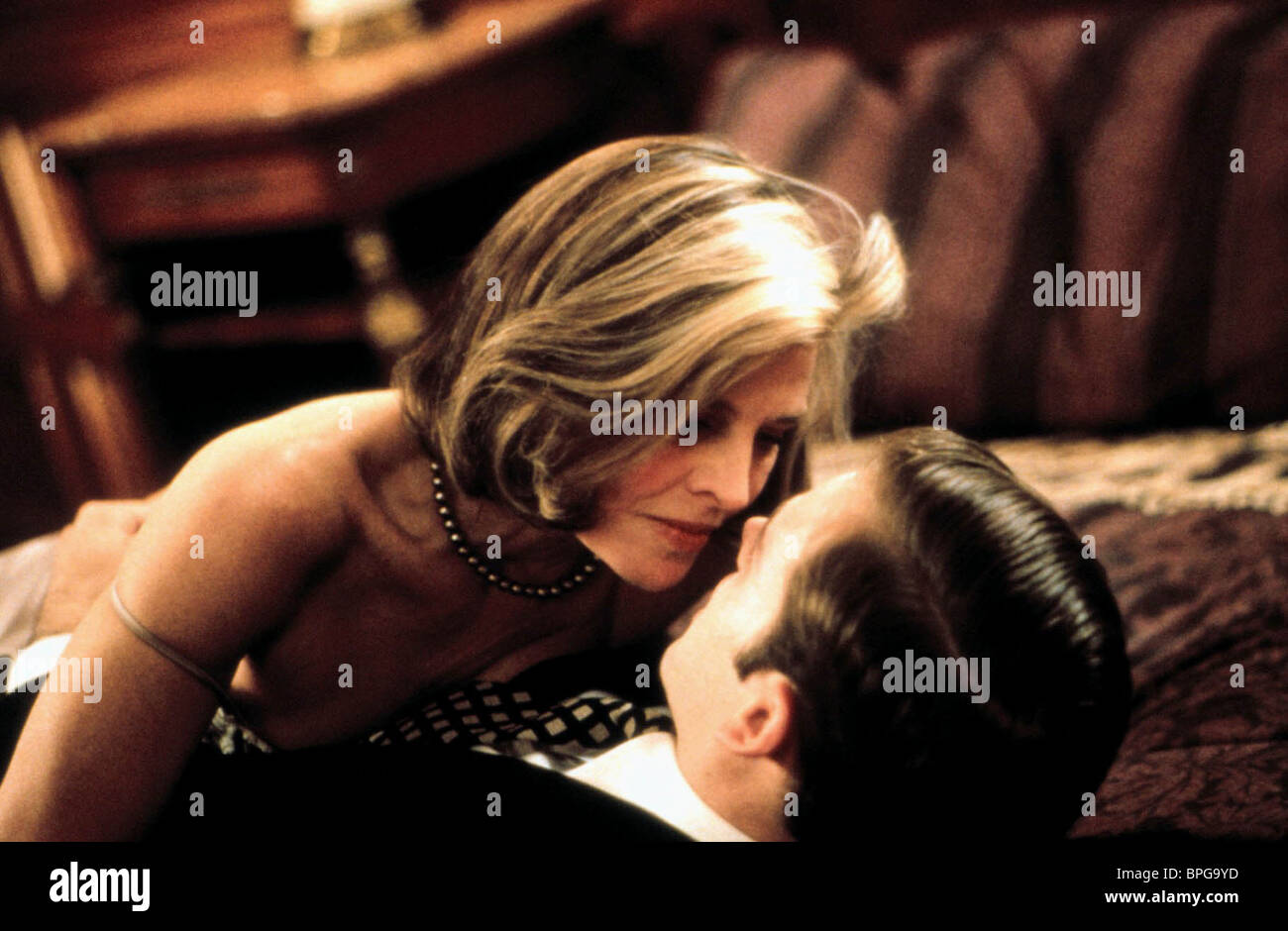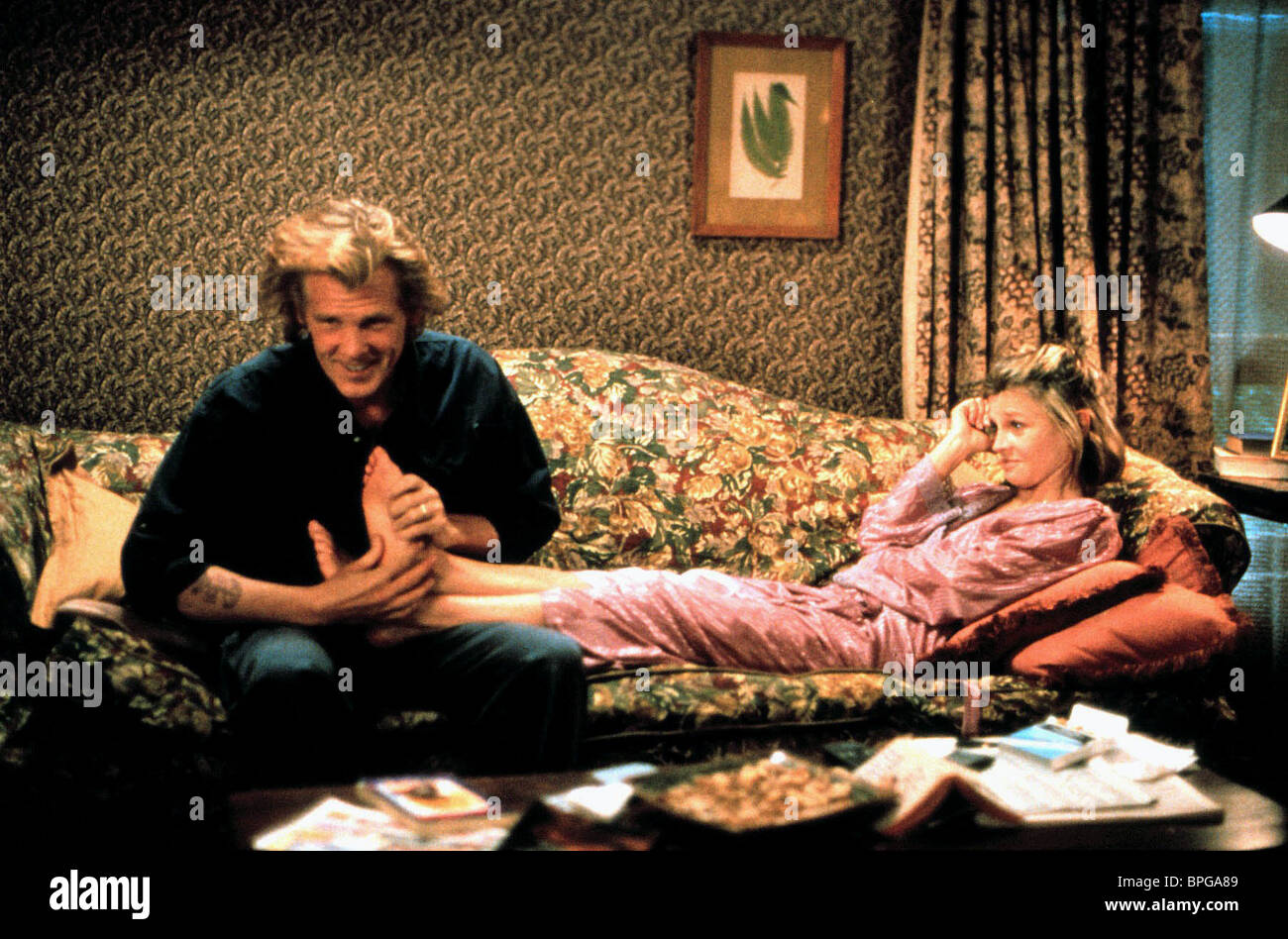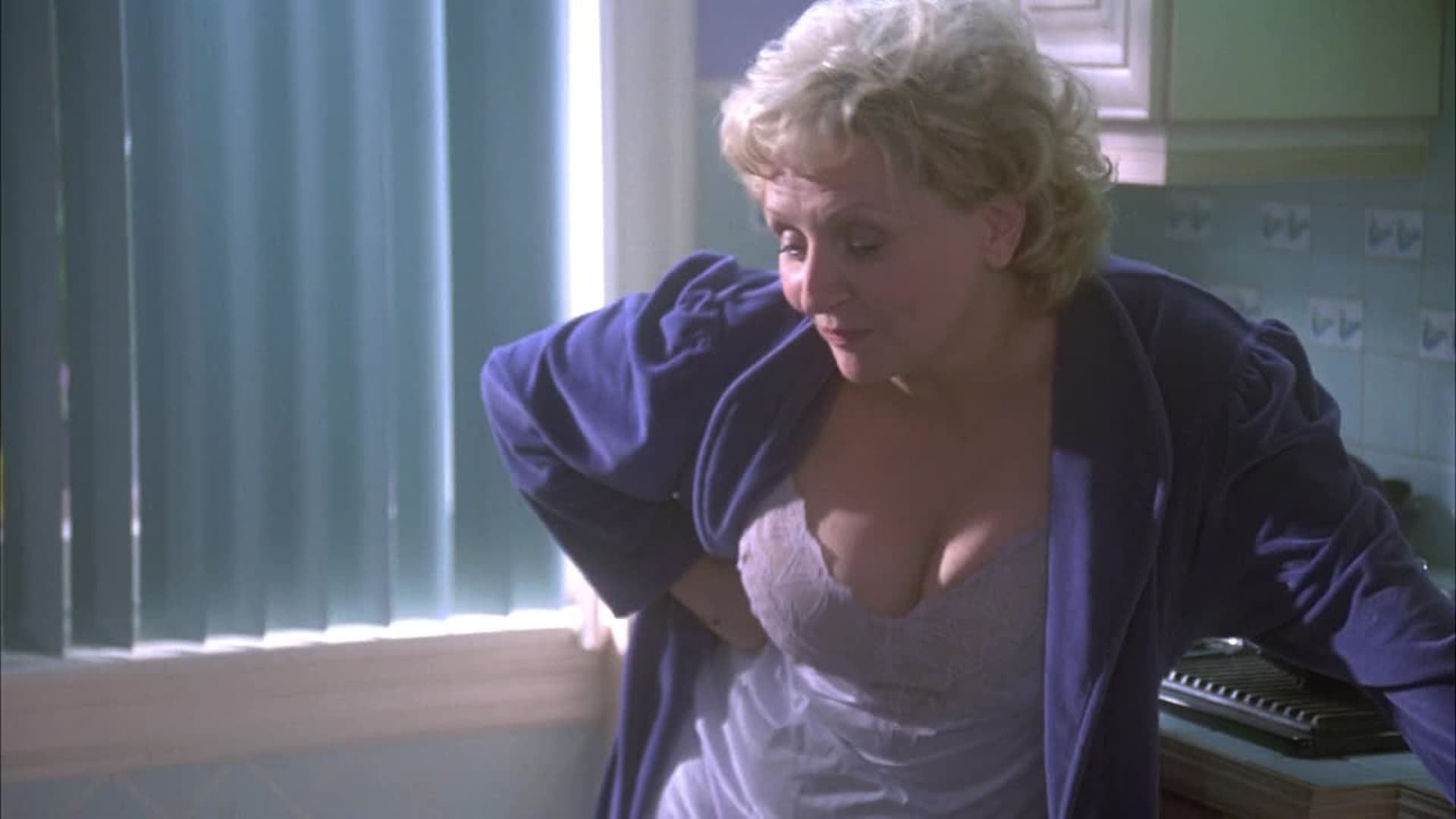← Back to Reviews
in
Afterglow
Two severely damaged marriages that are very similar and very different become hopelessly mangled in 1997's Afterglow, a character driven story of two marriages with a common link that, despite some superb performances, suffers to a screenplay that cops out at several points, especially the ending.

Lucky Mann (Nick Nolte) is a contractor/repairman married to Phyllis (Julie Christie), a former B movie actress who sits at home all day drinking and watching her old movies. They haven't had sex in years. Marianne Byron (Lara Flynn Boyle) is a sexually frustrated housewife who wants a baby. She's married to Jeffrey (Jonny Lee Miller) a workaholic who has no interest in becoming a father and finds himself fighting off the attraction of a co-worker (Jay Underwood).

Lucky is recommended to Marianne when she is looking for a contractor to convert one of the rooms of her apartment into a nursery and it is not long before Lucky and Marianne are having an affair. Meanwhile, Jeffrey goes to a hotel to look for Marianne because he suspects her infidelity, but instead of finding her, he finds Phyllis and begins pursuit of her.

Director and screenwriter Alan Rudolph attempts to paint a broad canvas for this story unlike the work of his mentor Robert Altman and attempts to move this story in several directions and then backs away. It was really interesting that the initial link between the two couples was a child...for the Manns, it was a child who left home many years ago and for the Byrons, It's a child that doesn't exist yet, a child that Marianne wants more than life and Jeffrey doesn't want at all and yet and because of these children, neither couple has been able to connect and have not been intimate for years.

I was initially intrigued by the idea that Jeffrey was having an affair with a man because the character piqued my gaydar almost immediately and it is approached but backed away from a mere thirty minutes into the film, which made the distance between Marianne and Jeffrey make even less sense. As unhappy as the Byrons are, the explosive confrontation that occurs when Jeffrey catches Lucky and Marianne at a bar together is a little unnerving and might even produce unintentional giggles. It would have been nice if Rudolph had painted his story with bolder colors and less gray and the ending is way too ambiguous.

The film is watchable though thanks to the powerhouse performances by Julie Christie, Nick Nolte, and Jonny Lee Miller. Christie's bold and theatrical turn earned her a Best Actress nomination and the chemistry she creates with Nolte is positively kinetic. Not the complete film experience it should be, but Christie and Nolte make it worth a look.
Two severely damaged marriages that are very similar and very different become hopelessly mangled in 1997's Afterglow, a character driven story of two marriages with a common link that, despite some superb performances, suffers to a screenplay that cops out at several points, especially the ending.

Lucky Mann (Nick Nolte) is a contractor/repairman married to Phyllis (Julie Christie), a former B movie actress who sits at home all day drinking and watching her old movies. They haven't had sex in years. Marianne Byron (Lara Flynn Boyle) is a sexually frustrated housewife who wants a baby. She's married to Jeffrey (Jonny Lee Miller) a workaholic who has no interest in becoming a father and finds himself fighting off the attraction of a co-worker (Jay Underwood).

Lucky is recommended to Marianne when she is looking for a contractor to convert one of the rooms of her apartment into a nursery and it is not long before Lucky and Marianne are having an affair. Meanwhile, Jeffrey goes to a hotel to look for Marianne because he suspects her infidelity, but instead of finding her, he finds Phyllis and begins pursuit of her.

Director and screenwriter Alan Rudolph attempts to paint a broad canvas for this story unlike the work of his mentor Robert Altman and attempts to move this story in several directions and then backs away. It was really interesting that the initial link between the two couples was a child...for the Manns, it was a child who left home many years ago and for the Byrons, It's a child that doesn't exist yet, a child that Marianne wants more than life and Jeffrey doesn't want at all and yet and because of these children, neither couple has been able to connect and have not been intimate for years.

I was initially intrigued by the idea that Jeffrey was having an affair with a man because the character piqued my gaydar almost immediately and it is approached but backed away from a mere thirty minutes into the film, which made the distance between Marianne and Jeffrey make even less sense. As unhappy as the Byrons are, the explosive confrontation that occurs when Jeffrey catches Lucky and Marianne at a bar together is a little unnerving and might even produce unintentional giggles. It would have been nice if Rudolph had painted his story with bolder colors and less gray and the ending is way too ambiguous.
The film is watchable though thanks to the powerhouse performances by Julie Christie, Nick Nolte, and Jonny Lee Miller. Christie's bold and theatrical turn earned her a Best Actress nomination and the chemistry she creates with Nolte is positively kinetic. Not the complete film experience it should be, but Christie and Nolte make it worth a look.
